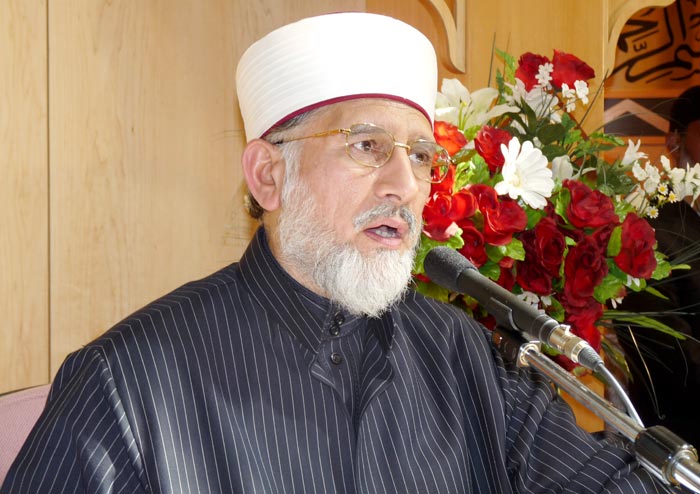
Rarely does a single event become a defining one for a particular Mosque or city, one that becomes a form of identity for its venue. Yet the Gauth-ul-Azam Conference held at Manchester Central Mosque (Victoria Park), on Sunday 2nd August 2009 was certainly that for many reasons. First and foremost being that it was blessed by the presence of one of the highest authorities in the Muslim world in terms of Islamic learning and also one of the highest spiritual personalities and Sufis of the time, that being non other than Shaykh-ul-Islam Dr Muhammad Tahir-ul-Qadri.
The people of Manchester and the UK at large had been waiting anxiously for this day, as it was a very long four years ago since Shaykh-ul-Islam had previously delivered a lecture at the mosque. So it was not surprising that the mosque was full to capacity as soon as Shaykh-ul-Islam arrived at the mosque. People were all crammed inside the mosque with many standing at the doors and looking through windows from the car parks. The same was the situation in the sisters hall. It was clear that the public, no matter what their background recognise Shaykh-ul-Islam as a leading authority on Islamic teachings and spirituality and were determined to come and listened to him. Through watching his lectures on QTV and other TV channels over the last few years, people have built a personal relationship with Shaykh-ul-Islam. So although many may be listening to him for the first time in person in this conference, it would feel as though they have had a long standing relationship with him. They are attracted to him for the sole reason that he is reviving the true teachings of Islam by his unique method of research that is evident in his lectures and books.
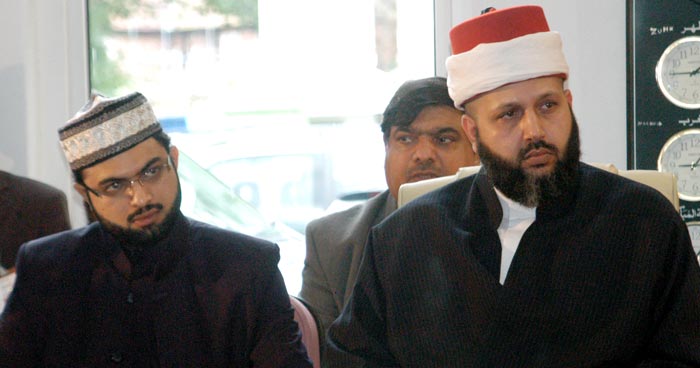
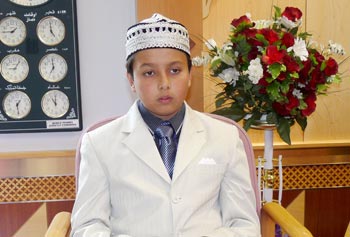
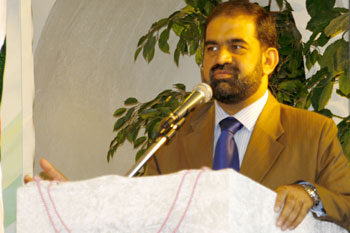
People from all kinds of backgrounds belonging to many different salasil and organisations attended the conference to listen to another historic lecture by Shaykh-ul-Islam Dr Muhammad Tahir-ul-Qadri. Other key guests at the conference included Sahibzada Abdul Qadir Jamal-ud-Din, Nazim-e-Ala Minhaj-ul-Quran International Dr Raheeq Ahmad Abbasi, Qari Sayyed Sadaqat Ali, Shaykh Hassan Mohiudeen al-Qadri, Shaykh Hamad Mustafa al-Qadri, Aneeq Ahmed amongst others. Many scholars from across the country were also present.
Shaykh Muhammad Ramzan Qadri conducted the proceedings. To begin with, Qari Sayyed Sadaqat Ali, a world renowned Qari and a Khalifa and student of the one and only Qari Abdul Basit recited verses from the Holy Quran. His great recitation had the audience mesmerised by the true miracle of the beauty of Quranic recitation. His recitation mirrored that of his teacher.
The recitation of the Holy Quran was followed by a nasheed praising the Holy Prophet SAW by Muhammad Afzal Noshahi who is known as Hassan-e-Minhaj. He recited one of the nasheeds that he is renowned for. The audience all joined in with him creating a glorious atmosphere.
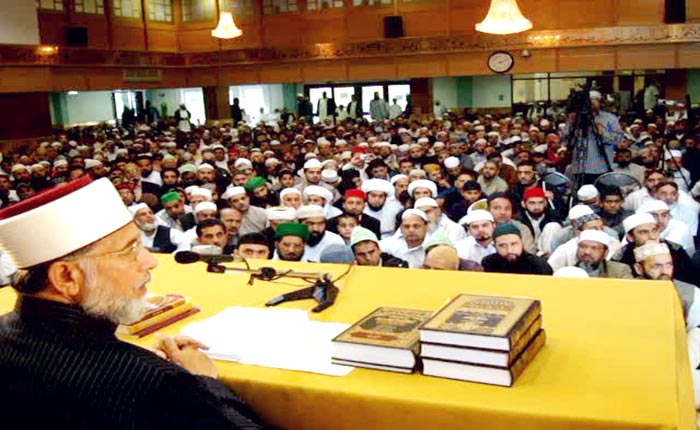
Shaykh-ul-Islam Dr Muhammad Tahir-ul-Qadri was then invited to deliver his lecture. He set out the topics that he would be covering in his lecture. The first part of the lecture was about Walayah in light of the Holy Quran, Hadith, Quranic interpretations and Hadith interpretations. He said he will prove the true creed with regards to the awliyah from these original authentic sources. He emphasised that due to the lack of this kind of presentation of Islamic creed, many people especially the younger and educated sections of society were unconvinced by the message that they were receiving and shunned the true creed. Alternatively they accepted the presentation of creed by rival sects who used the original sources to prove their cases all be it using incorrect applications of verses and traditions. Shaykh-ul-Islam emphasised that he has pioneered a unique method of discourse which encompasses research in such a way that each lecture is in itself a book. He said this is the need of the time and it is the method that he has always adopted.
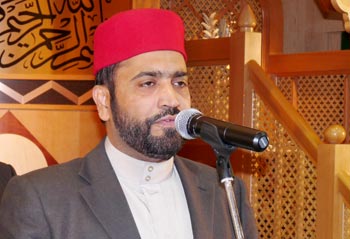
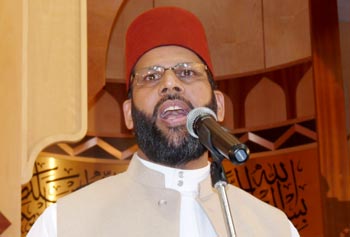
Shaykh-ul-Islam discussed the as'hab-ul-kahf (people of the cave) from Sura al-Kahf and pointed out many points from the verses. One such point was that the sun dipped towards one side of the cave for both the times of sunrise and sunset so that the rays of the sun would not harm those in the cave. Another more amazing reference given by Shaykh-ul-Islam was of the dog that was with the as'hab-ul-kahf, when it spoke to them. Shaykh-ul-Islam said that you may have heard this story from other books on walaya or Sufism, but I am giving you a reference of this from Tafseer Qurtabi and Tafseer Kabeer of Imam Fakhr-ud-Din ar-Razi. He gave quotations from these renowned authentic interpretations of the Holy Quran of the dog talking to the As'hab-ul-Kahf: 'the dog stood up on its hind legs raising his front legs and said: do not try to get rid of me, I may be a dog but I am a dog that does not bark, and I am one that loves the awliya of Allah...'. Both interpretations gave the reference of a hadith narrated by Ka'ab al'Ahbar, a companion of the Holy Prophet SAW. Shaykh-ul-Islam said that people may be able to reject such a quotation from a book by a Sufi from the Indian subcontinent from the last century but nobody can reject these quotations made by these great imams of tafseer.
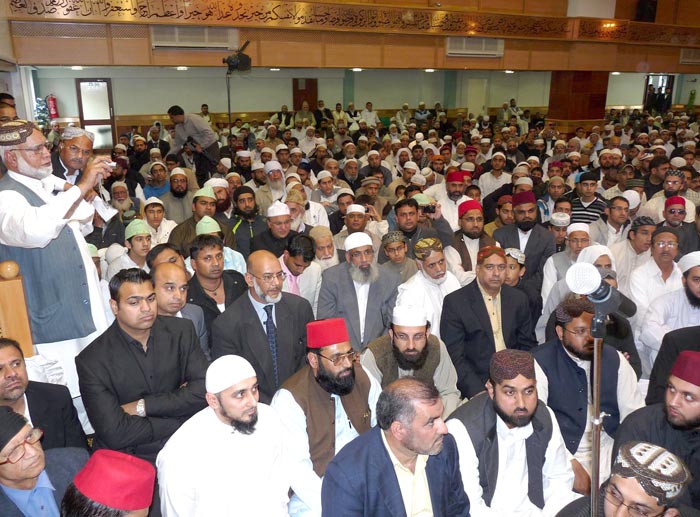
The second part of the lecture was about aspects of the life of Gauth-ul-Azam Mohy-ud-Din Shaykh-ul-Kul Shaykh Abdul Qadir al-Jilani al-Baghdadi al-Hasani al-Husayni (RA-Allah SWT is pleased with him) that are commonly known or spoken about. He said that Gauth-ul-Azam (RA) was the greatest Islamic scholar at the time and renowned imams of the time were his students, or used to attend his lectures.
Shaykh-ul-Islam gave quotations from the books of Allama Ibn Taymiyyah which highly praised Gauth-ul-Azam's superior knowledge and spiritual status. He also gave a reference from a book by Allama Ibn Jawzi, who mentioned that he sat in a lecture by Gauth-ul-Azam (RA) in which Gauth-ul-Azam (RA) was presenting interpretations on a particular verse. He writes that he himself only knew of eleven of the forty interpretations that Gauth-ul-Azam (RA) gave. He further writes that after giving forty interpretations, Gauth-ul-Azam (RA) said these were the interpretations of Qaal (speech) now I will start on the interpretations of Haal (spiritual states). He writes that as Gauth-ul-Azam gave the first interpretation of Haal, that he (Allama Ibn Jawzi) came into a state of ecstasy and jumped up and tore off parts of his own clothes. Shaykh-ul-Islam gave numerous other references from renowned imams on their extreme love, affection and regard for Gauth-ul-Azam and how they attributed titles such as Gauth-ul-Azam to him.

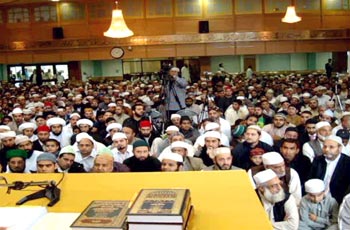
The third part of the lecture was about the teachings of Gauth-ul-Azam. Shaykh-ul-Islam said that many generations of Gauth-ul-Azam were great authorities of knowledge. All ten sons of Gauth-ul-Azam were Muhaditheen. Many female members of his family were also muhaditheen. This shows how his teaching were practised by his immediate family and how he nurtured and taught them. Shaykh-ul-Islam gave quotations from the books of Gauth-ul-Azam on character reformation.
The duration of the lecture was over three and a half hours. Only a few points from the vast ocean of knowledge raining down from the lecture have been mentioned here. The DVD of the lecture should be consulted for the whole lecture.
After the conclusion of the lecture Asar Prayer was performed, after which Salah and Salam on the Holy Prophet Muhammad SAW were presented followed by a concluding Dua by Sahabzada Abdul Qadir Jamal-ud-Din.
Report by Shaykh Jawed Iqbal Tahiri
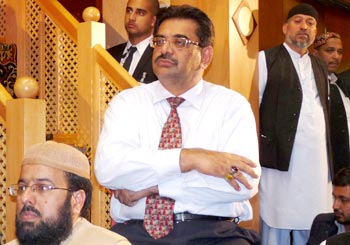
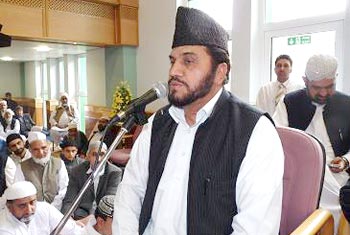
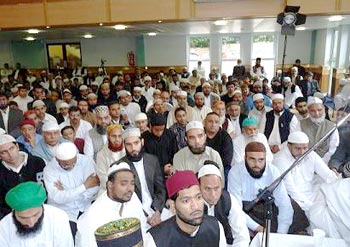
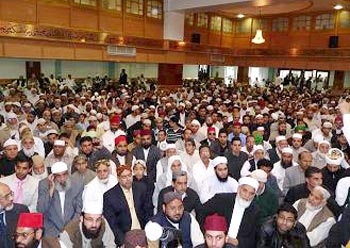
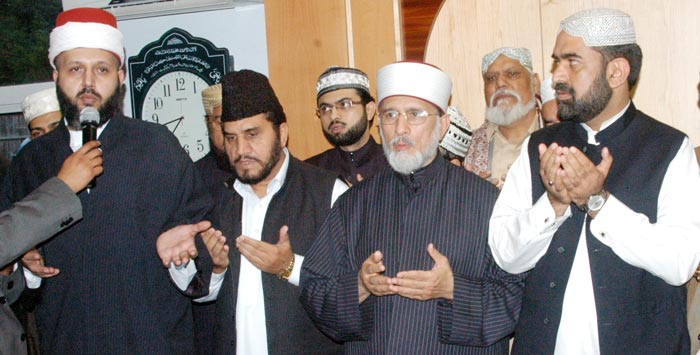
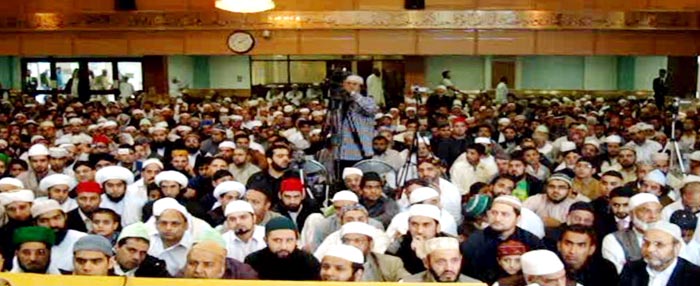

Comments